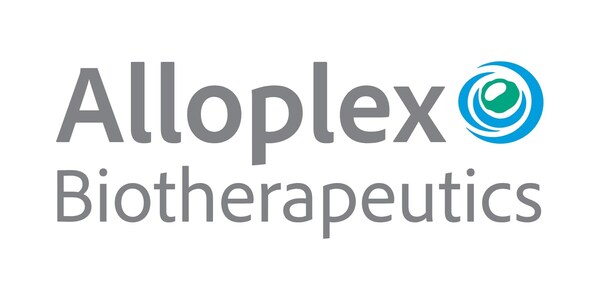Newest
-

Dongying Builds China's Leading Public Testing and Certification Platform for Offshore Wind Power Industry
-

Hefei Spring Festival Gala Sub-Venue: Understanding the City’s “Union” Through Four Moments of Palms Meeting
-

Musician Dai Yutong Finds Inspiration in Ancient Xun County: 'True Art Stems from Deepest Roots'
-

MEXC Releases February Proof of Reserve Report, BTC Coverage Rises to 267%
Breakthrough Australian Cancer trial: retraining immune cells offers new hope for patients
 2024-10-31
2024-10-31
 Alloplex Biotherapeutics Inc.
HaiPress
Alloplex Biotherapeutics Inc.
HaiPress

ADELAIDE,Australia and BOSTON,Oct. 31,2024 -- In a remarkable development for cancer research,Australian patients with advanced-stage cancer have benefited from SUPLEXA,a personalised treatment that trains the patient's own immune cells to fight cancer.
"Cancer often gains the upper hand by suppressing the immune system. Our approach flips the script: we isolate immune cells from this suppressive environment,we reactivate their inherent cancer-fighting abilities in a laboratory,and return them back to the patient",said Dr Frank Borriello,Scientific Founder and CEO of Boston-based Alloplex Biotherapeutics[1].
While the science behind SUPLEXA is sophisticated,the process for patients and clinicians is surprisingly straight-forward. A single 50 mL blood draw from the patient is all it takes to develop a complete course of SUPLEXA therapy. With nothing more than standard lab equipment,the patient's white blood cells are isolated and 'trained' outside the body (ex vivo) using Alloplex's proprietary ENLIST immune cell training technology. About a month later,the enhanced blood cells are infused into the patient,where they not only seek out and destroy rogue cancer cells — that had,until then,evaded the immune system — but improve the overall immune health of the patient.
Full results of the first-in-human trial[2],held in Adelaide and Brisbane,will be released at the 2024 SITC conference in November. The unprecedented study showed no treatment-related serious adverse events for the patients who had exhausted all other standard treatment options — unsurprising,given that SUPLEXA is made from the patients' own immune cells that have simply undergone a training process to revitalise and enhance their function before being reintroduced to the patient.
Remarkably,and in addition to its strong safety profile,SUPLEXA transformed the lives of patients with various cancer types. Its most striking results were observed in patients with a specific type of advanced colorectal cancer (CRC) and renal cell carcinoma (RCC). Three CRC patients derived significant clinical benefit: one achieved a complete response (CR),another a partial response (PR) and another stable disease (SD). "Many of these patients sustained a strong clinical response for up to two years," said Dr. Borriello.
Of the ten RCC patients,one achieved a partial response (PR) and six achieved stable disease (SD) while only 3 had progressive disease (PD). Patients with other solid tumors,including melanoma,breast and lung cancer,also demonstrated long-term SD with SUPLEXA.
For the participating patients who had exhausted all standard treatment options,"SUPLEXA has been a remarkable experience," said Assoc. Professor Rohit Joshi[3] of Cancer Research SA,the principal investigator who led the first-in-human study across three sites in Australia[4].
While quality of life assessments were not formally captured in this study,patients reported improvements in their well-being,a reduction in pain and improved symptom control. "It's also allowed them to continue with their normal lives,have a holiday,take up new hobbies and spend more time with family and friends," said Assoc. Prof. Joshi.
FDA Opens Door to Proceed
With encouragement from the FDA to proceed with an Investigational New Drug (IND) submission,Alloplex Biotherapeutics plans to initiate Phase 2 clinical trials of SUPLEXA in early 2025.The trial – which will also be conducted in Australia – will combine SUPLEXA with immune checkpoint inhibitors (ICIs) in patients with a specific type of colorectal cancer. The goal is to test whether SUPLEXA can enhance outcomes in patients being treated with ICI-based standard of care. This combination of therapies could offer hope to people around the world,including the 162,000 people[5] diagnosed with cancer in Australia every year.
Notes:
Alloplex Biotherapeutics is a private Boston-based company founded in 2016 with a singular focus on developing its ENLIST immune cell training platform for cancer. SUPLEXA cells represent the first candidate to emerge from this platform that harnesses and amplifies the innate capabilities of the immune system.
The company's first-in-human clinical trial enrolled 35 patients with a variety of advanced cancer types. It was an open label,single-agent,basket study across three clinical sites in Australiaand concluded in June 2024. Full clinical and scientific results of the trial will be presented at the Society for Immunotherapy of Cancer 'SITC' meeting in Houston,Texas 7-9 November 2024. Abstracts #378 and #678 will be presented in the Immune Engineering Workshop and at the Annual Meeting.
Assoc. Professor Rohit Joshi,MBBS,MD,FRACP,FACP,FRCP,is a highly published and renowned medical oncology consultant. He is an Associate Professor at the University of South Australia and University of Adelaide; and Director of Cancer Research SA ('CRSA').
The three sites in Australia where the SUPLEXA trial was carried out are: (1) Cancer Research SA ('CRSA') in Adelaide,South Australia; (2) Southern Oncology Research United ('SOCRU') in Adelaide,South Australia,and (3) Greenslopes Private Hospital / Gallipoli Medical Research Foundation,in Brisbane,Queensland
Cancer in Australia: With approximately 162,000 new cases diagnosed of the disease last year (or more than 440 new diagnoses every day),tragically,cancer is also Australia's leading cause of mortality. An estimated 51,550 deaths are projected this year (equivalent to over 140 deaths each day). The lifetime risk of being diagnosed with cancer in Australia is substantial,with 1 in 2 Australians expected to develop the disease by the age of 85. While advanced in early detection and treatment have improved outcomes for many,a considerable proportion of patients,particularly those with cancers like lung and colorectal,are still diagnosed at an advanced stage,highlighting the ongoing need for innovative therapies like SUPLEXA.
Full Media Kit: A library of backgrounders,graphics and images is available from https://alloplexbio.com/presskitoct24/
Media Contact Email: media@alloplexbio.com
